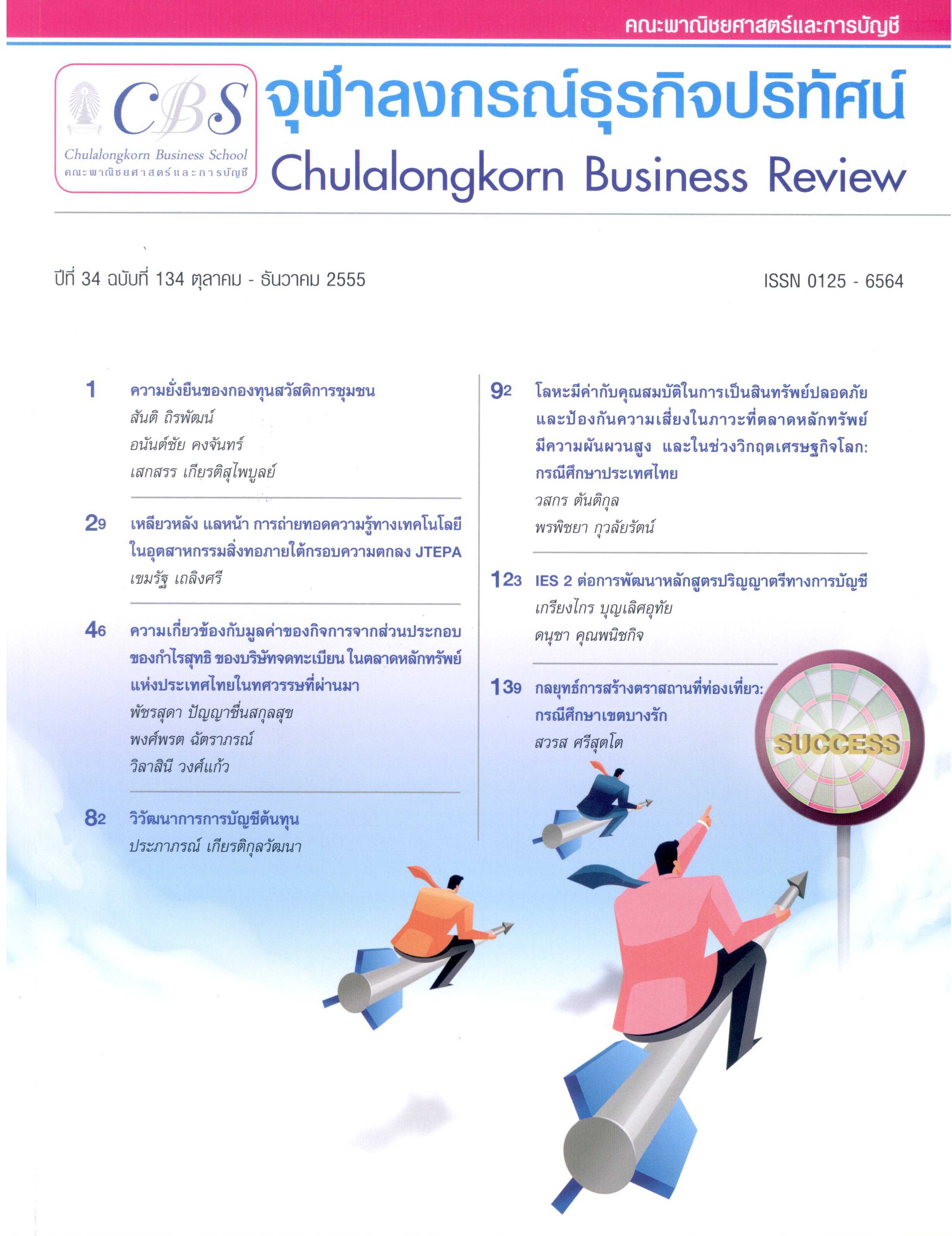IES 2 ต่อการพัฒนาหลักสูตรปริญญาตรีทางการบัญชี
Main Article Content
Abstract
บทความนี้สะท้อนให้เห็นถึงแนวโน้มการพัฒนาหลักสูตรปริญญาตรีทางการบัญชีของประเทศไทยและประเทศที่เป็นสมาชิกของสมาพันธ์สภาวิชาชีพบัญชี ที่มุ่งเน้นการประเมินผลสัมฤทธิ์ของการเรียนรู้เพื่อสะท้อนถึงสมรรถนะทางวิชาชีพของนักบัญชีมากกว่าการประเมินความครบถ้วนในสาระของความรู้ตามมาตรฐานการศึกษาทางการบัญชีสากลฉบับที่ 2 ที่มีผลบังคับใช้ในปัจจุบัน ทั้งนี้ เพื่อให้สถาบันการศึกษาใช้เป็นแนวทางในการพัฒนาและปรับปรุงหลักสูตร และให้ผู้สอนได้ปรับตัวในกระบวนการเรียนการสอน เพื่อสร้างนักบัญชีในอนาคตที่มีสมรรถนะเชิงเทคนิคด้านวิชาชีพ (Technical Competence) พร้อมต่อการแข่งขันในการประกอบวิชาชีพบัญชีทั้งในประเทศและกลุ่มประเทศอาเซียนต่อไป
คำสำคัญ: มาตรฐานการศึกษาทางการบัญชีสากล นักบัญชีมืออาชีพ ผลสัมฤทธิ์ของการเรียนรู้
Abstract This paper reflects a trend in the development of undergraduate accounting curriculums in Thailand and International Federation of Accountants (IFAC) country members. This trend emphasizes on a learning outcome approach to demonstrate professional competence, rather than on a prescribed knowledge content as indicated in the extant International Education Standards 2 (IES 2). This paper aims to provide universities with a guideline for developing or revising accounting curriculums and to encourage accounting and business instructors to adjust their teaching approaches in order to produce accounting graduates who are professional accountants with Technical Competence for Thailand and ASEAN countries. keywords: International Accounting Education Standards; Professional Accountants; Learning Outcomes;Article Details
Opinions and discussions in papers published by the Creative Business and Sustainability Journal (CBSJ) are deemed as personal opinions and the responsibility of the writers. They are not the opinions or responsibility of the Chulalongkorn Business School of Chulalongkorn University.
Papers, content, information etc. appearing in the Journal are deemed to be the copyright property of the Chulalongkorn Business School of Chulalongkorn University. Anybody or any organization that wishes to publish any part of them or use them in any way must obtain written permission from the Chulalongkorn Business School, Chulalongkorn University.


